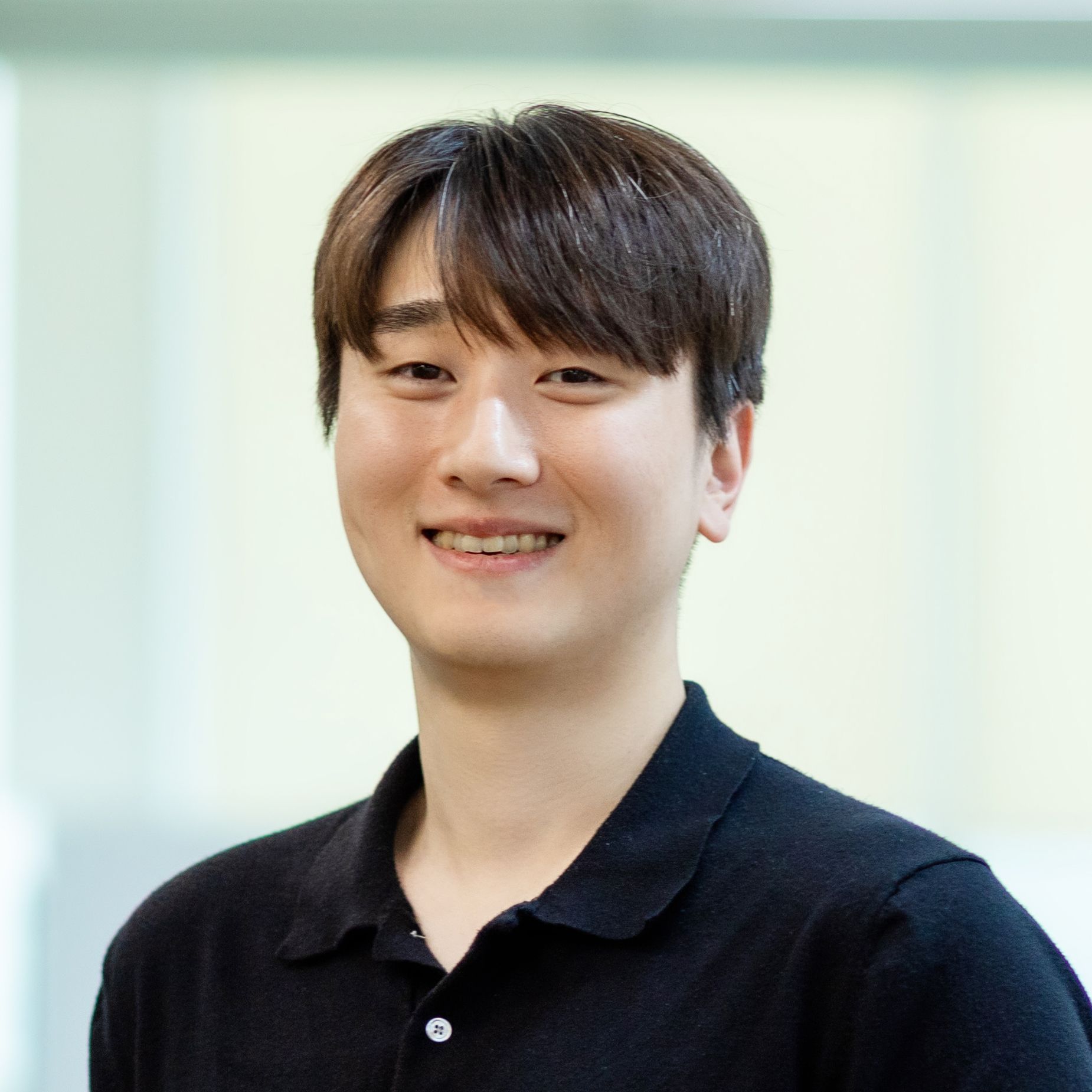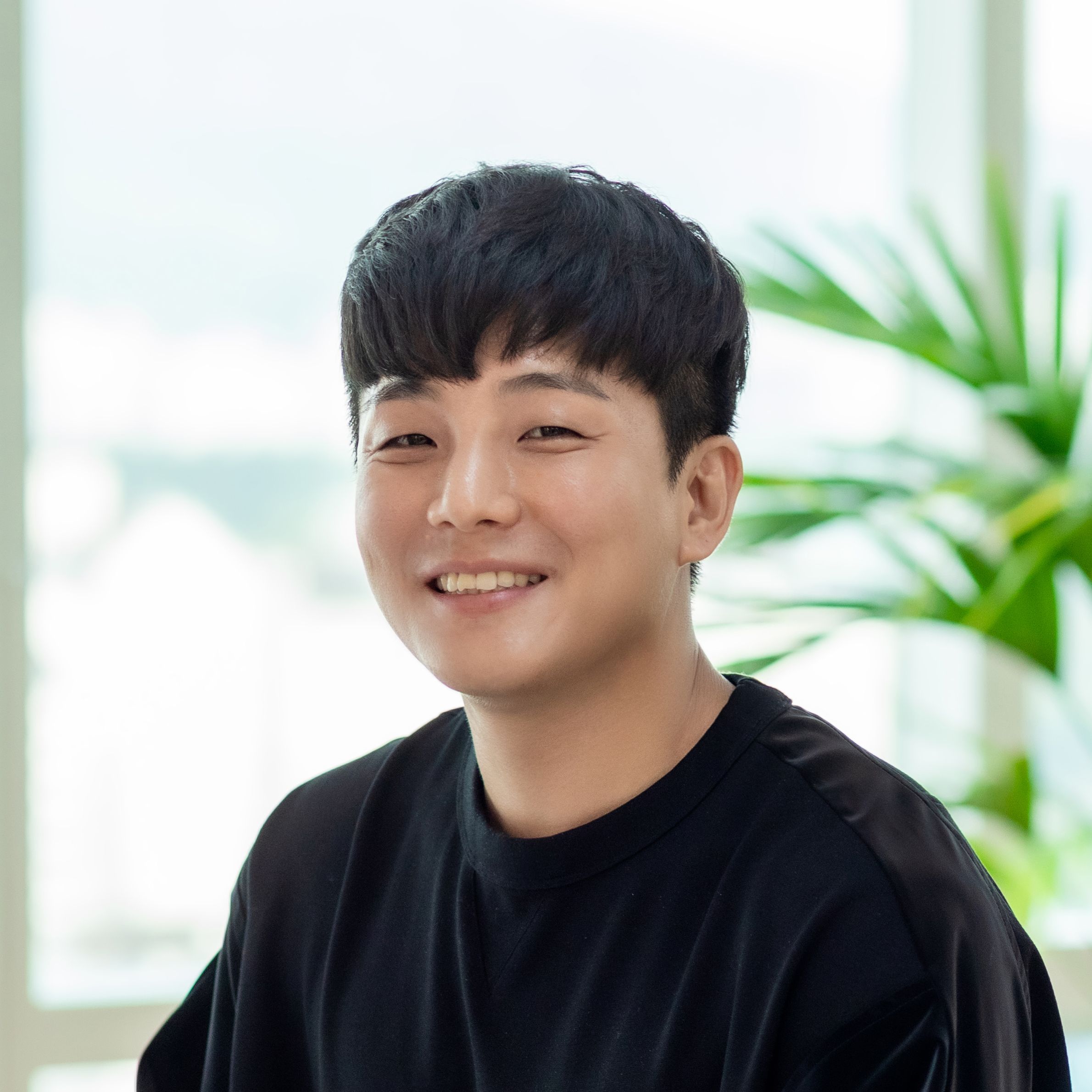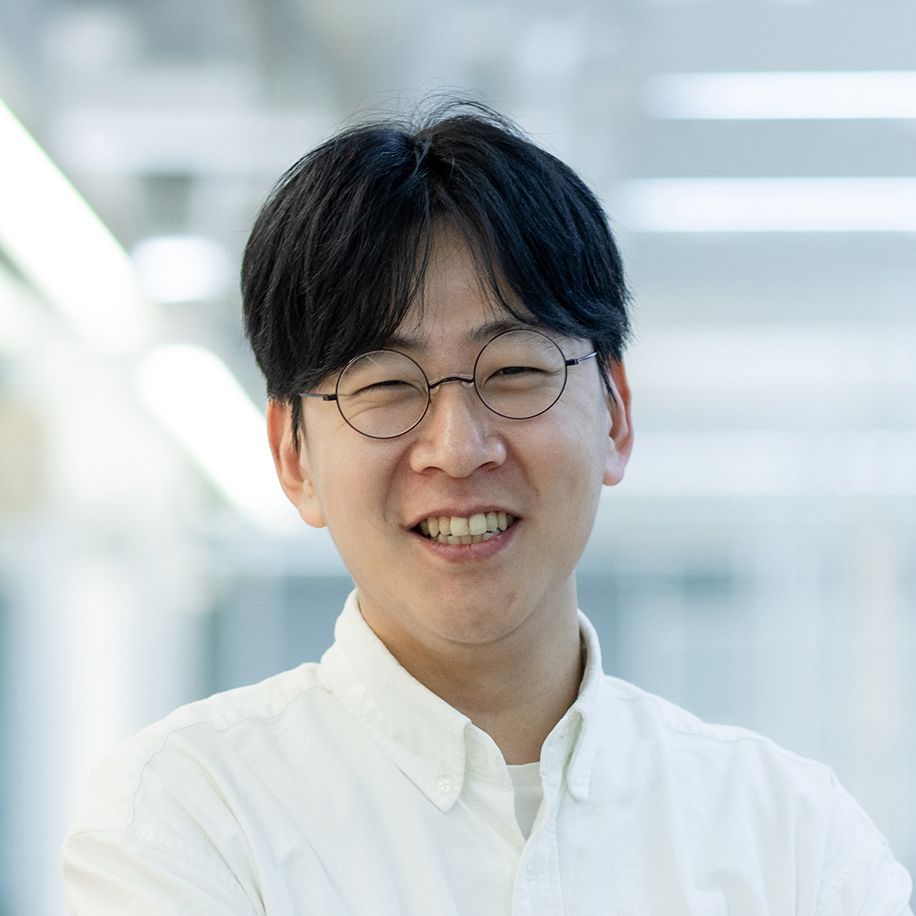Meet the Global LINERs
Engineering
Sangyoon Han / Cloud QA Engineering / LINE Plus
For his first interview as a Cloud QA Engineer, Sangyoon says he hopes to use this conversation to connect with future colleagues. Although working with a Private Cloud is a rare opportunity in Korea, if you have a technical understanding of cloud technology and an interest in quality management, we invite you to read on. Let’s begin the interview!
A quick three-line summary
- In the Cloud Quality Assurance team, Sangyoon is responsible for the network product line’s quality within the company’s Private Cloud.
- For Sangyoon, a “challenge��” is any moment that isn’t standing still—it’s always in progress.
- A work environment that recognizes effort, builds trust, and encourages proactive action fuels continuous growth.
About Work
Q Please introduce LINE's Cloud Quality Assurance Team.
The Cloud Quality Assurance team is responsible for ensuring the quality of our in-house Private Cloud. LINE has built a company-wide Private Cloud to provide cloud services to global engineers. This infrastructure supports the development and operation of various applications in more than 10 countries. We work closely with development teams and other departments at every stage of cloud service development and operation to maximize service quality. We verify a range of cloud services, from IaaS (Infrastructure as a Service) to PaaS (Platform as a Service) and FaaS (Function as a Service), using various quality engineering tools and techniques to optimize quality during development and operation. We actively adopt “Shift Left” testing methods to strengthen collaboration with development teams, detect defects early, and ensure higher quality. For example, we've integrated API test codes created by our QA team into the development team's CI/CD process. We also focus on maximizing user experience with cloud services. It's important not only that the functions work properly but also that they offer high usability. Therefore, our team suggests better implementation methods to the development team to enhance usability and aims to deliver a user experience comparable to Public Cloud services. This focus on both product quality and user experience sets our team apart from other QA teams. Our team is a global team, with members from Japan, Korea, and Vietnam. We use English as our common language during daily scrum meetings, and although it's not everyone's native language, we all try hard to communicate effectively. We also write documents in English for consistency and use various collaboration tools for more intuitive communication. We welcome individuals who are eager to collaborate with global members and showcase their skills.
Q What are your specific responsibilities?
I am responsible for the quality of the Private Cloud's network products, including Load Balancers, VPCs, DNS, and Proxies. I work closely with development teams to thoroughly test both frontend and backend functions, using various tools and techniques to identify quality improvements. Network products play a fundamental yet crucial role in ensuring smooth application operations within Cloud services. Therefore, I focus on quality management to ensure that internal end users can easily set up and operate network connectivity as expected. Through these efforts, I aim to maximize the reliability and efficiency of the network products in the cloud environment!
Q It sounds like you have a lot of responsibilities in your current role. What do you find most appealing about it?
The most appealing aspect of being a Private Cloud QA Engineer is the opportunity to enhance product quality by leveraging infrastructure services and virtualization technology knowledge, beyond just testing application-level functions. Cloud services differ significantly from typical applications in terms of quality management, as they involve virtualizing standardized infrastructure. A deep understanding of infrastructure services and virtualization technology is crucial for quality management. If you have experience in infrastructure or cloud virtualization, you can enhance the overall quality of cloud services and ensure system stability and efficiency from a broader perspective. Additionally, as cloud technology evolves, Private Cloud QA Engineers must learn the latest technologies to propose solutions that improve the user experience. Keeping up with the latest infrastructure trends is essential for enhancing the user experience. This not only strengthens personal technical skills but also plays a key role in suggesting innovative, user-centered solutions.
Q While there are appealing aspects, there must also be challenging parts, right?
Absolutely. (laughs) The biggest challenge is adapting to the rapidly changing trends in virtualization technology. Cloud technology requires not just learning new concepts but also continuously improving methods to effectively validate complex technologies. This means constantly learning and understanding new tools and techniques. Understanding various infrastructure virtualization methods requires a lot of energy and learning to grasp the development team’s intentions. I try to embrace these challenges naturally, taking my time to clearly understand the technology. By comparing legacy infrastructure with new technology, I identify why complexity has increased and use diagrams to grasp the overall structure, which helps in understanding complex concepts more easily. These visual aids are invaluable for understanding the overall context of new technologies. Additionally, I learn a lot by sharing new technologies with my team members all the time. If a concept from the development team is particularly difficult or complex, I rely on thorough communication, using test results or code execution outcomes to gain a clear understanding.

Q Are there differences between Service QA and Cloud QA?
While I haven't experienced Service QA at LINE, I can explain how I see the differences from my perspective. Cloud QA focuses on infrastructure rather than a specific service. It's the system that supports various services, unlike a single application. In Service QA, the end users are LINE's customers, but in Cloud QA, our users are LINE's developers. Understanding end-user feedback is crucial, so we constantly gather VOC (Voice of Customer) for LINE's private cloud services through internal systems. Our team closely monitors this feedback, with each product's PIC paying careful attention. The differences stem from the nature of services, infrastructure, and end users. Many applicants for Cloud QA roles prioritize QA experience, which is important, but understanding the infrastructure of Cloud is key. Before joining LINE, I worked with cloud products at a public cloud provider. I found that even without extensive QA experience, having a technical understanding of cloud and an interest in quality management is valuable. I encourage those with such interests to apply confidently.
Q Among the tasks you've undertaken thus far, what did you find the most enjoyable?
Honestly, not every moment at work is fun. (laughs) However, I find great satisfaction in improving and resolving usability issues. Once a feature is fixed by the development team, it's hard to change the specs. So, instead of passively verifying developed specs, our QA team proactively considers usability, organizes our thoughts, and makes counterproposals to the engineers. This process requires a lot of communication and persuasion. I'm also interested in automating tasks to boost team efficiency and productivity. For instance, we introduced a tool late last year that allows you to set up your desired test environment with just a few clicks. While it may seem small, these improvements can lead to significant productivity gains for both individuals and the team over time.
Q What's your focus when collaborating with other roles, departments, or globally?
Most of my collaborators are based in Japan and Vietnam. The first priority when collaborating is to communicate my questions and answers clearly. I believe it's crucial to constantly question myself and stay in sync with team members in real time. I review everything multiple times and actively request calls to confirm opinions, always backing up my points with quantitative data. For instance, I analyze the usability of AWS, which has the largest market share, and document how it links to our internal private cloud products (Verda/Flava) for easy access by our engineers. The second focus is building personal connections. Understanding the backgrounds of the engineers I work with makes communication smoother and reduces back-and-forth. Personally, I look forward to business trips for this reason. (laughs) However, since frequent travel isn't always possible, I make active use of internal communication channels. Although we have translation bots and interpreters, I prefer speaking directly in English to show I'm always open to communication. Lastly, it's important that the engineers trust me. The clear communication based on data and the proactive approach I mentioned are ways to demonstrate that I have the technical skills and am not just following a manual.

Challenges and Failures
Q What does the word “challenge” mean to you?
I would describe it as a "work in progress" because I dislike being stagnant. I started my career in cloud product support and now work in an organization that covers LINE's entire cloud domain. To handle my tasks professionally, I'm quickly learning the rapidly evolving virtualization technologies. It's essential to be knowledgeable enough to be trusted by the development team. Additionally, our organization is always looking for proactive ways to improve product quality, which is a significant challenge at the team level. Initiatives like chaos engineering and usability enhancements stem from this mindset. Lastly, maintaining smooth communication with related departments to build trust as a QA engineer is always a challenge for me. So, in the end, it's a "work in progress." (laughs)
Q Has there been a particular situation or turning point where you feel you grew significantly through your experience at LINE?
On the technical side, I've significantly enhanced my knowledge and skills in network virtualization. Our lead has extensive experience in the software development lifecycle and quality management, so working with them has taught me a lot about testing methodologies and the philosophy and mindset of quality management as a QA engineer. I didn't just keep this knowledge to myself; I made an effort to share what I learned with my team. I organized and delivered presentations, both big and small, on the insights I gained and potential improvements for the team. Since we often use video conferencing for our hybrid work, I've also honed my ability to deliver concise and focused presentations. The combination of great colleagues, a supportive environment, and efforts to enhance my expertise in my role has contributed to my growth.

Thoughts on competencies
Q What abilities and qualities do you believe are necessary for delivering excellent performance in your role?
Having experience in quality management and improvement within the software development cycle is very beneficial. A basic understanding of various infrastructure services and technologies is also essential. Cloud virtualization technology plays a critical role in virtualizing existing infrastructure to run various services, so a deep understanding of it is crucial. While knowledge of the latest cloud technologies is important, a strong foundation in infrastructure technology makes it easier to grasp applied virtualization technologies. Experience in quality engineering and related skills is also a plus. Our team actively uses new tools and technologies to enhance testing efficiency, so experience with writing automated test code or using such tools would be a significant contribution. Beyond technical skills, effective communication is also necessary. Cloud QA Engineers play a key role in collaborating with various departments to improve cloud service quality. It’s important to clearly understand specs and planning intentions from the PM team, sometimes using storyboards to grasp project direction and goals. With the development team, you need to share improvements and usability ideas based on a clear understanding of the specs. Smooth communication ultimately ties into the success of projects and quality improvements.
Special experiences at LINE
Q Please tell us about the colleagues that you work with at LINE.
I’m lucky to work with a lot of excellent people. I especially like collaborating globally with engineers from around the world. It's a great advantage for those eager to learn more and use foreign languages. Secondly, we are a team that actively shares knowledge. We value growing together rather than just individually. Lastly, we have a well-established culture of embracing challenges. The supportive atmosphere encourages team members to keep improving and growing. I'd also like to take this opportunity to greet our members in Japan and Vietnam! (laughs) In Japan, we have a member returning from parental leave soon, and I want to give a warm welcome. I'm grateful to the Japanese engineers for sharing diverse opinions and to the Vietnamese engineers for meticulously covering areas we might miss. Thank you, and I look forward to continuing to work well together!
Q Is there any benefit or cultural aspect at LINE that you think is particularly notable?
I take pride in our work culture where proactive efforts are recognized and trusted. In our organization, rather than a top-down approach, members actively seek out and handle tasks themselves. Our leaders guide us to make better choices, acting as navigators to help us determine what needs to be done and how to proceed, instead of just assigning tasks and saying, "Go solve it." Of course, with this autonomy comes the responsibility for our choices. Sometimes in a company, you might wonder, "Why am I doing this task?" But since joining LINE, I've never felt that way. Our leaders clearly explain the direction and background of our tasks, so I always have a clear motivation for my work. I'm proud of our leaders, who not only manage diverse teams effectively but also set a great technical example. I'm also proud of my colleagues, who consistently perform their roles—and often more—exceptionally well!

Wrap-up
Q Do you have any goals you personally want to achieve at LINE?
I joined LINE and the Cloud Services team for a clear reason: to experience LINE's private cloud. While the existing internal cloud service, Verda, didn't offer that opportunity, I've been involved with Flava since its early development with LY. I hope to contribute to its evolution and see more internal developers use Flava over AWS. I also aim to enhance my skills to cover all network virtualization products and communicate effectively with developers about architecture.
Q Any message for those interested in this position?
If you're reading this, you're probably aspiring to be a future LINER, right? If you've made it through this long piece and reached my final thoughts, I believe you're filled with a strong desire to become a LINER. I remember carefully reviewing materials related to the team I applied for before my interview. There's a big difference between understanding a role through a job description and grasping the team's work and dynamics through firsthand stories, which is why I wanted to share my experience. I hope it helps you a bit. I wasn't originally a QA engineer; I worked as a technical support engineer at a public cloud vendor. Although my experience differed slightly from the job description requirements, I believed in my strengths and contributions, which brought me here. Don't get too caught up in the skills and qualifications listed in the job description. Even if your career path doesn't perfectly align, if you have unique strengths and qualities that can contribute to the team, don't hesitate to go for it!




